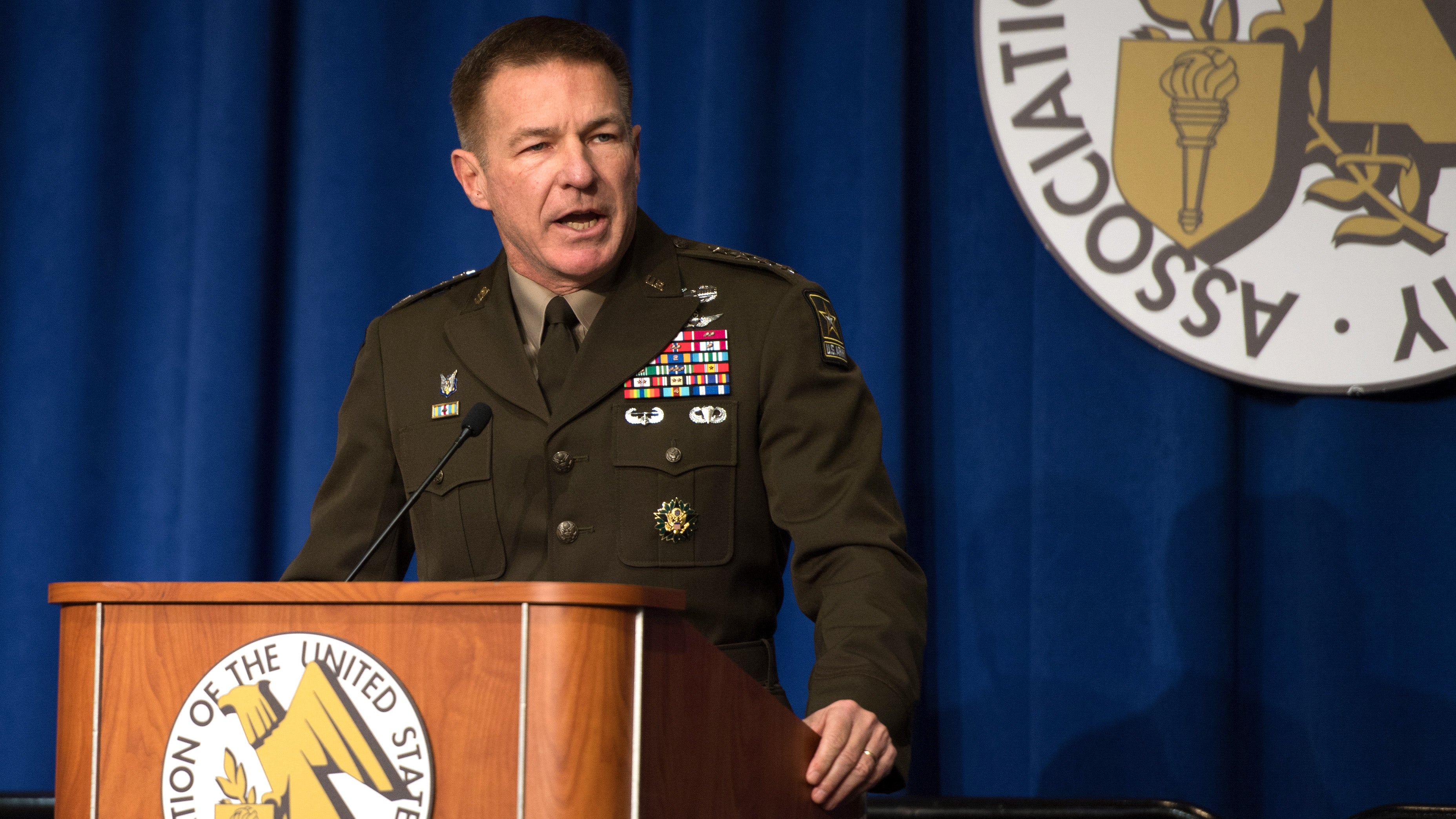Army Transformation Brings Bold Changes
Army Transformation Brings Bold Changes

The U.S. Army has embarked on its biggest transformation in 40 years, boldly revolutionizing the force in far deeper ways than just new weapons and capabilities, Army Chief of Staff Gen. James McConville said March 16.
In a keynote address March 16 during Global Force Next, a three-day virtual conference hosted by the Association of the U.S. Army, McConville said every part of the Army is evolving in an effort that changes how the force fights, how it does business and how it treats people, uniformed and civilian.
“This is an exciting time to be in the United States Army,” he said. “We face many challenges and just as many opportunities.”
The so-called “people business” is a pathway to readiness and modernization, McConville said.
There are many moving parts. The Army needs a force that is highly trained, ready and fit. It also needs a force that has time to train. “We are trying to get predictability back into the force,” McConville said, which isn’t easy with so much new equipment in the works. Soldiers and units will need time to adjust.
The Army also needs a cohesive force, which McConville said requires addressing corrosive problems like sexual assault and harassment, racism and extremism. This allows soldiers to “focus on their missions,” he said.
“The best units in the world ensure their individuals and small units are masters of their craft,” McConville said. “If you don’t have a solid foundation of readiness, you won’t have agility.” He sees a world where missions will change, requiring agile units.
Advantages in future fights will go to the side that can make better, faster decisions, he said. “To meet emerging challenges, the Army is boldly transforming to provide the joint force with the speed, the range and convergence of cutting-edge technologies that will be needed to provide future decision dominance in overmatch for great-power competition,” he said.
Forward-looking talent management policies that get the best use of people also are important, he said, observing that the Army historically has spent more time deciding “which privates to send to the Ranger regiment than we spent choosing leaders to fill the most consequential positions in the Army.”
The wide range of capabilities under development, some of them close to being fielded, makes the Army an invaluable partner in multidomain operations, McConville said. “The Army will provide multiple options to the combatant commanders as well providing multiple dilemmas to our adversaries.”
Doing all of this in a coordinated fashion is a complicated but essential part of transformation, he said. “We are talking a lot about convergence. Convergence is the act of coming together, where it is people, organizations, technologies, concepts, or all of the above,” he said.
For more on Global Force Next, click here. This year’s hashtag is #GlobalForceNext.

